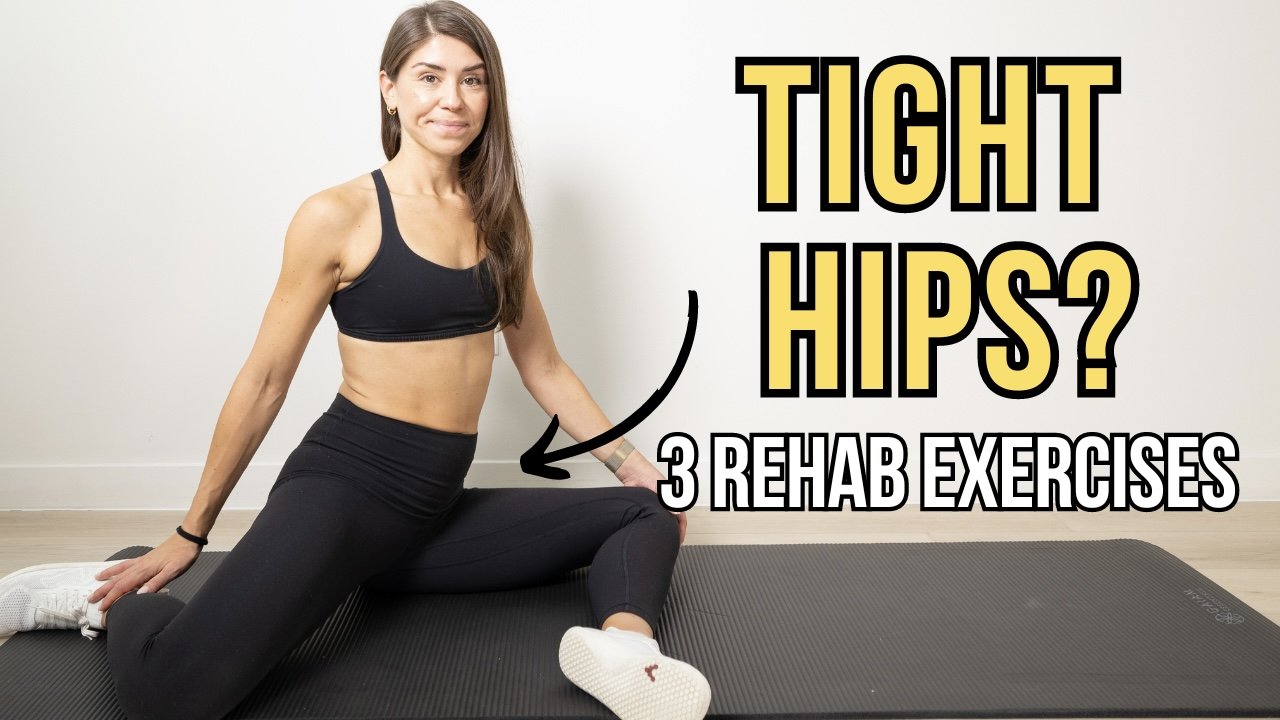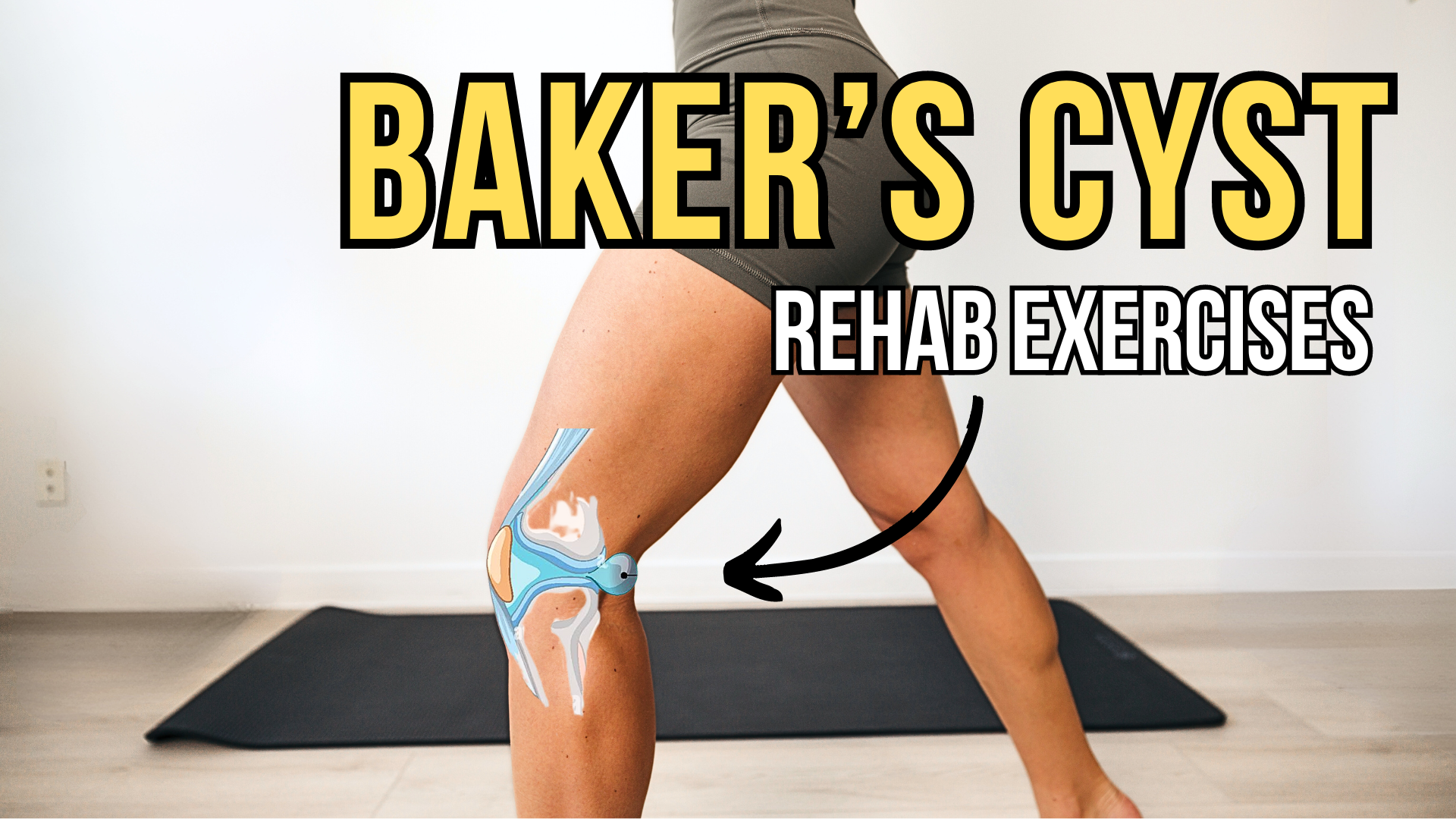Osteopathic Practitioner & Athletic Therapist
Jessica has over 15 years of experience helping you stay functional and continue progressing, even when you're dealing with injuries, pain, or setbacks.
Injury Education Delivered By Email
Join 25,000+ other subscribers and receive regular emails on injuries, exercise rehabilitation, and other health and science-related tools from Jessica Dudas.
Watch Rehab Tips & Injury Fixes
Rave Reviews.
Conditions Treated.
-
STRUGGLING WITH BACK PAIN?
Back pain can stem from poor posture, injuries, muscle imbalances, or stress. As an Osteopathic Practitioner and Athletic Therapist, I use hands-on manual therapy to assess and treat the root cause of your discomfort—not just the symptoms. Osteopathy helps restore mobility, reduce tension, and support your body's natural healing process so you can move better and feel stronger.
-
HEADACHES AND STRESS HOLDING YOU BACK?
Tension headaches and stress-related symptoms are often linked to a dysregulated nervous system, postural strain, or restrictions in the cranial and spinal tissues. Through gentle craniosacral therapy and osteopathic techniques, I help calm the nervous system, release tension, and restore balance in the body. This hands-on approach supports deep relaxation and lasting relief—so you can feel clear, calm, and more like yourself again.
-

DIGESTIVE ISSUES DISRUPTING YOUR LIFE?
Bloating, discomfort, and irregular digestion can often be linked to tension or restricted movement in the organs and surrounding tissues. Using visceral manipulation—a gentle, hands-on osteopathic technique—I help improve mobility and circulation in the abdominal area to support healthy digestive function. This subtle yet powerful approach helps your body restore balance from the inside out.
-

SUPPORTING FERTILITY AND PREGNANCY NATURALLY
Osteopathic treatment can play a powerful role in optimizing fertility and supporting a healthy pregnancy. Gentle manual therapy helps release tension in the pelvic floor, improve circulation to reproductive organs, and restore balance in the nervous system. By creating space and ease in the body, osteopathy supports natural conception and provides comfort through each stage of pregnancy.
-
New List Item
Description goes here
-
Jaw Tension, Clenching, or TMJ Pain?
Chronic jaw tension, grinding, and TMJ dysfunction can lead to headaches, facial pain, and disrupted sleep. As an Osteopathic Practitioner, I offer gentle intraoral and external manual therapy to release tension in the jaw, neck, and surrounding structures. This approach helps restore proper alignment, ease discomfort, and support long-term relief from clenching and grinding.
-

Knee Pain & Injury Rehab
Whether you're recovering from an ACL injury, meniscal tear, or dealing with bursitis, knee pain can limit your mobility and confidence. As an Osteopathic Practitioner and Athletic Therapist, I combine hands-on manual therapy with targeted exercise to reduce pain, restore joint mobility, and support proper healing. My approach addresses not just the knee, but the entire kinetic chain—from the hips to the feet—to get you moving with strength and stability again.
-

Neck Pain and Cervical Dysfunction
Neck pain may result from mechanical dysfunction, nerve impingement, or soft tissue injury—such as in cases of whiplash, cervical radiculopathy, or chronic muscular tension. As an Osteopathic Practitioner, I use manual therapy to assess and treat structural restrictions, restore cervical mobility, and reduce neural irritation. Treatment is aimed at improving alignment, relieving pressure on affected nerves, and supporting overall function of the cervical spine and related systems.
-

Post-Surgical Recovery & Rehab
Recovery after surgery—such as hip replacements, fracture repairs, or joint procedures—often requires more than just rest. As an Osteopathic Practitioner and Athletic Therapist, I support post-operative healing through manual therapy and tailored exercise rehabilitation. Treatment focuses on reducing scar tissue restrictions, restoring joint mobility, improving circulation, and rebuilding strength safely.
CONTACT US
CONTACT US
Helping you stay functional and continue progressing, even when you're dealing with injuries, pain, or setbacks.
Hours
Monday–Thursday
9am–3:30pm
Phone
604.358.8738











Are you struggling with wrist and thumb pain, especially when lifting or gripping objects? You might be dealing with De Quervain’s tenosynovitis—a painful condition that affects the tendons in your wrist and thumb, limiting your ability to function day to day. In this video, we’ll perform a quick test to determine if you have De Quervain’s, and I’ll guide you through several exercises and treatment solutions to help relieve pain, restore movement, and get you back to your daily activities, pain-free!